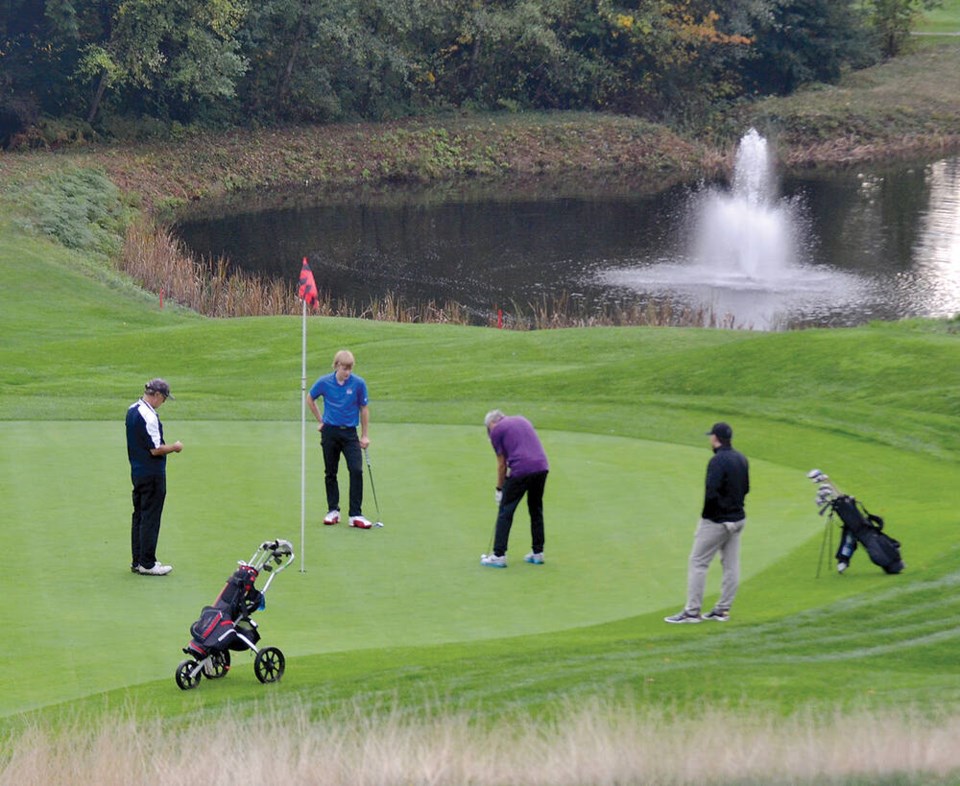As B.C. municipalities mark up bogeys on their score cards for affordable housing, advocates are eyeing up public golf courses as prime candidates for redevelopment.
Contrary to the flood-the-market philosophy being pushed by all levels of government, some experts believe that non-market units are the only way to address the housing crisis. To advocates like Patrick Condon, UBC professor chair of urban design in the school of architecture and landscape architecture, public courses are ideal soil for discount development because the land isn’t subject to the same cost pressures as private real estate.
Meanwhile, public courses in the province are experiencing a boom, especially in the wake of the pandemic, when people were encouraged to get outdoors more in physically distanced settings. Proponents of golf say that municipal courses host an abundance of wildlife, and offer rates that make the sport accessible to a wide range of income earners.
For golfers living on the North Shore, they won’t have to worry about their favourite courses closing pro shop anytime soon.
North Shore golf
Local municipalities are home to three public golf courses: Northlands in the District of North Vancouver, as well as Gleneagles and Ambleside Par 3 in West Vancouver. All the courses are profitable, according to financial statements. None of the course land has been considered for alternate uses, both governments have confirmed.
In 2022, Northlands brought in nearly $4 million in sales, with $844,000 in profit going to North Van District coffers. West Vancouver’s golf operations profited $289,000 in the same year, which went back into its golf-specific fund.
When the pandemic started, everyone found the love of the game again, says Gary Nedergard, manager of golf facilities and engineering services at Northlands.
“Previously, if people cancelled at the last minute … sometimes those tee times would get unused, because the demand wasn’t there,” he said. “But now, every single tee time is, as soon as one’s cancelled, booked right away.”
Even in the 2010 to 2018 period, where there were signs that golf participation numbers were waning across North America, Nedergard said that wasn’t the case on the North Shore.
Affordable housing outweighs game, UBC prof says
To sustainable land-use experts like Condon, the value of public acreage goes far beyond the annual earnings made by golf courses.
In the context of the housing crisis, one of the biggest impediments to creating affordable homes isn’t developers, Condon explained, it’s what he calls “land speculators.”
“People who extract maximum value [from] the transfer of land from one density to another – that’s where the big money really is,” he said. “And it doesn’t seem that adding new supply will by itself create affordable housing, because as you add new supply, land values increase.”
“If you’re looking around for land that isn’t subject to that phenomenon, the large areas which are presently given over to golf courses, some of which are public golf courses, jump out at you as having a current market value in the many billions of dollars if they were to be sold,” Condon said.
But he doesn’t recommend selling the land. Rather, Condon argues that the land value could be leveraged to achieve affordable housing. In a 2019 Globe and Mail opinion piece, he suggested the City of Vancouver look to its public golf courses to address the growing housing crisis.
In the example of Langara, Condon proposes that the golf course land be cut in half – with one portion dedicated to housing and the other to parkland. Of the developed half, one-third could be market units that would generate “tremendous” cash availability. Those funds could be used to build another third of the land as middle-class homes and the remaining third as social housing, Condon said.
“That model can be repeated,” he said. “If cities have land valuable to do that, [they] can leverage that land value to meet the social objective of affordable housing without encumbering the taxpayer.”
North Vancouver lobbied for Northlands
On the other hand, it was taxpayers who once rallied for a full-length public golf course to be built on the North Shore.
“It took the community to get Northlands built, with the North Shore Public Golf Course Society that was formed back in the early ’90s that lobbied the council of the day,” said course manager Nedergard.
“The community is the one that got this property developed for golf,” he said, adding that the course has continued with its operating philosophy of providing superior golf while staying in the green financially.
Much has changed since Northlands opened in 1996 to make the mountainous 18-hole course more friendly to all golfing abilities. Most of the treelines along the holes have been cleared of brush and fallen logs, for example, making it easier for your average golfer to keep track of their ball.
With twilight, early bird, weekday and seniors’ rates, green fees are very competitive in the Metro Vancouver public golf market, Nedergard added.
“Because we’re a public facility, we’ve got everywhere from juniors right through seniors and all income structures – working class and retired and business people,” he said. “We have a cross-section of the community on a daily basis here.”
But Condon stresses that North Shore municipalities, and others across B.C., need to do something “very soon” to avoid forcing more middle-income and low-wage earners out of the community. With the cost of housing , Condon said golf courses are the “lowest of low hanging fruit” when looking for local solutions to a national problem.
“That’s why, with the intention of at least starting a dialogue about these things, that myself and others have put forward these provocative proposals,” he said.



